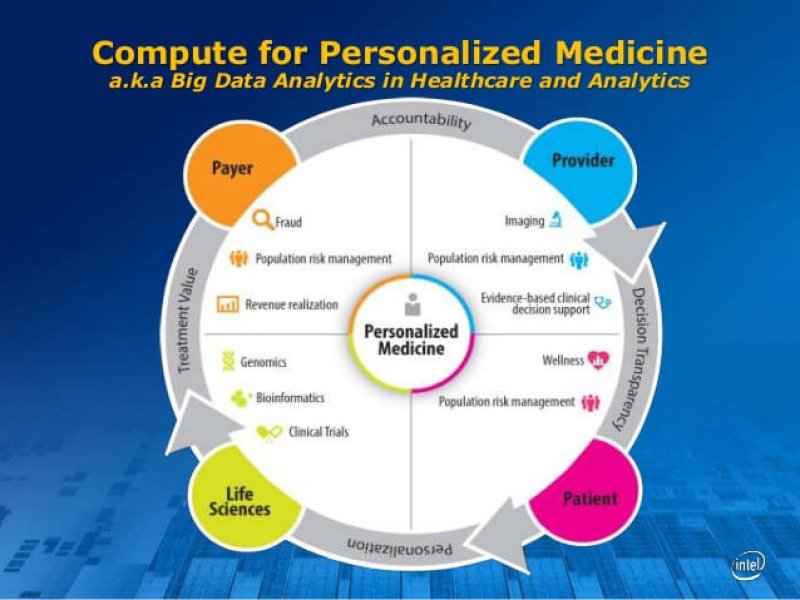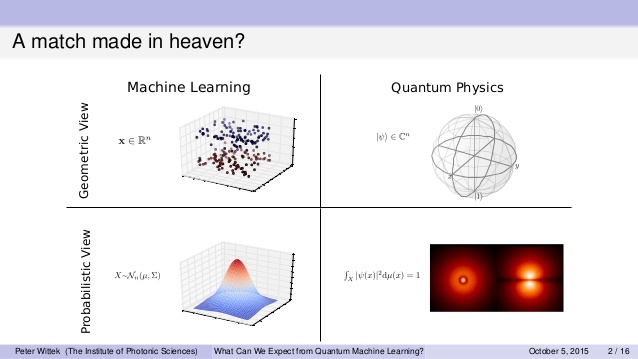

Unlocking the Quantum Realm: Introduction
The advent of quantum computing heralds a new era in computational power, but with great power comes great responsibility. This article delves into the critical realm of Quantum Computing Security, exploring the unique challenges and innovative solutions that safeguard the future of quantum computing from potential threats.
To explore cutting-edge Quantum Computing Security measures, visit Quantum Computing Security. This platform provides insights into the latest advancements, ensuring a secure quantum computing landscape.
Quantum Supremacy and Security Implications
As quantum computers approach or achieve quantum supremacy, the ability to solve complex problems at an unprecedented speed becomes a reality. However, this advancement raises security concerns. Quantum Computing Security must address the potential threat to current cryptographic methods, as quantum algorithms could render existing encryption protocols obsolete.
Post-Quantum Cryptography: A New Paradigm
In response to the cryptographic vulnerability posed by quantum computers, the field of post-quantum cryptography has emerged. This paradigm shift involves developing cryptographic algorithms that remain secure even in the face of quantum attacks. Quantum-resistant encryption algorithms, such as lattice-based cryptography and hash-based cryptography, are being explored as potential successors to traditional methods.
Quantum Key Distribution (QKD): Unbreakable Communication
Quantum Key Distribution (QKD) offers a revolutionary approach to secure communication in the quantum era. Leveraging the principles of quantum mechanics, QKD enables the creation of encryption keys with an unprecedented level of security. By detecting any eavesdropping attempts, QKD ensures the confidentiality and integrity of transmitted information, providing a foundation for quantum-safe communication.
Quantum-Secure Blockchain: Guarding Distributed Ledgers
The widespread adoption of blockchain technology has prompted the development of quantum-secure blockchain solutions. Quantum Computing Security in the context of blockchain involves implementing cryptographic algorithms resistant to quantum attacks. Securing distributed ledgers against quantum threats is crucial to maintaining the integrity and immutability of blockchain-based transactions.
Securing Quantum Hardware: The Hardware Layer
Quantum Computing Security extends beyond software to encompass the security of quantum hardware. Researchers are exploring techniques to protect quantum processors from physical attacks, such as tampering or side-channel attacks. Ensuring the integrity of the quantum hardware layer is essential for maintaining the reliability and security of quantum computation.
Quantum-Safe Software Development Practices
Developing quantum-safe software requires a shift in traditional software development practices. Quantum Computing Security measures for software involve implementing algorithms and protocols that are resilient to quantum attacks. Quantum-safe software development ensures that applications remain secure as quantum computers advance in capabilities.
Standardization Efforts for Quantum Security
Standardization plays a crucial role in Quantum Computing Security. International efforts are underway to establish standards for post-quantum cryptography, quantum-resistant algorithms, and quantum-safe communication protocols. Standardization efforts aim to create a unified framework that ensures interoperability and a consistent approach to quantum security across industries.
Quantum Threat Intelligence: Staying Ahead
Quantum Threat Intelligence is an emerging field focused on anticipating and mitigating potential threats to quantum computing systems. As quantum technologies evolve, understanding the landscape of quantum threats becomes essential. Quantum Threat Intelligence enables proactive measures to counteract potential vulnerabilities, ensuring a resilient quantum computing environment.
Ethical Considerations in Quantum Security
With the power of quantum computing comes ethical responsibility. Quantum Computing Security must address ethical considerations, including the responsible use of quantum technologies and the potential societal impact. Balancing innovation with ethical principles is crucial to ensuring that quantum advancements benefit humanity without unintended consequences.
Conclusion: Navigating the Quantum Frontier Securely
As quantum computing continues to advance, Quantum Computing Security stands as the sentinel guarding against potential risks. From post-quantum cryptography to secure quantum hardware and ethical considerations, the journey into the quantum frontier requires a comprehensive and proactive approach to security. By embracing innovative solutions, the world can harness the power of quantum computing securely and shape a future where computational possibilities know no bounds.


Revolutionizing Healthcare: Introduction
In the realm of healthcare, precision medicine is emerging as a transformative approach, and biotech breakthroughs play a pivotal role in its advancement. This article delves into the intersection of biotechnology and precision medicine, exploring how biotech innovations are reshaping the landscape of personalized healthcare.
Understanding Precision Medicine
Precision medicine revolves around tailoring medical treatment to the individual characteristics of each patient. Factors such as genetic makeup, lifestyle, and environment are taken into account to design targeted interventions. Biotechnology acts as the driving force behind the tools and techniques that enable the precise customization of medical care.
Genomic Sequencing and Personalized Treatments
At the core of biotech in precision medicine lies genomic sequencing. Biotechnological advancements in genomic research allow for the comprehensive analysis of an individual’s DNA. This wealth of genetic information enables healthcare professionals to identify specific genetic mutations, paving the way for personalized treatments that target the root causes of diseases.
Biomarker Discovery and Diagnostic Tools
Biotechnology contributes significantly to biomarker discovery, crucial for precision medicine diagnostics. Through advanced biotechnological methods, researchers can identify biomarkers – indicators of various health conditions. These biomarkers serve as the basis for developing diagnostic tools that enable early detection and accurate diagnosis, a cornerstone of precision medicine.
Gene Editing Technologies in Precision Medicine
The advent of gene editing technologies, such as CRISPR-Cas9, has revolutionized the potential for precision medicine. Biotech tools like CRISPR enable precise modification of genes, offering unprecedented possibilities for correcting genetic abnormalities. This opens new avenues for treating inherited disorders at the molecular level.
To explore cutting-edge biotech applications in precision medicine, visit Biotech in Precision Medicine. This platform showcases the latest innovations, highlighting the synergy between biotechnology and personalized healthcare.
Drug Development and Therapeutic Advances
Biotechnology accelerates drug development by providing insights into the molecular basis of diseases. Precision medicine leverages this knowledge to develop targeted therapies. Biotech-driven advancements in drug discovery enable the creation of medications tailored to specific genetic profiles, leading to more effective and less invasive treatments.
The Role of Artificial Intelligence in Biotech
Artificial Intelligence (AI) is increasingly intertwined with biotechnology in precision medicine. AI algorithms analyze vast datasets, including genomic information and clinical records, to identify patterns and predict treatment responses. This synergy between AI and biotech enhances the accuracy and efficiency of personalized treatment strategies.
Challenges and Ethical Considerations
While biotech in precision medicine holds immense promise, it also presents challenges and ethical considerations. Issues like data privacy, consent for genetic testing, and equitable access to advanced treatments need careful consideration. Addressing these challenges is vital to ensure that the benefits of precision medicine are accessible to all.
The Future of Biotech in Precision Medicine
The trajectory of biotech in precision medicine points toward a future where healthcare is increasingly personalized, targeted, and effective. Ongoing research and technological advancements will likely bring forth new biotechnological tools, further expanding the possibilities of precision medicine. Embracing these innovations will usher in an era where medical care is truly tailored to the unique characteristics of each individual.
Conclusion: A Personalized Healthcare Landscape
Biotech in precision medicine represents a paradigm shift in healthcare, offering hope for more effective treatments and improved patient outcomes. The synergy between biotechnology and precision medicine opens doors to a new era where medical interventions are not only targeted but also personalized, marking a revolutionary advancement in the quest for better health and well-being.


Absolutely, here’s the article:
Biometric Security: Advanced Systems
Introduction to Biometric Security Systems
Biometric security systems have emerged as a sophisticated means of authentication, relying on unique biological traits for identity verification. These systems utilize fingerprints, facial recognition, iris scans, and even behavioral characteristics like voice patterns or gait for secure access control and identification.
Enhanced Security and Authentication
Biometric systems offer heightened security compared to traditional authentication methods like passwords or PINs. Biological traits are unique to individuals, making it significantly harder for unauthorized access, reducing the risks associated with identity theft or credential sharing.
Biometric Applications in Access Control
One of the primary applications of biometric security systems is in access control. Whether it’s securing physical spaces like buildings or restricting digital access to sensitive data, biometric identifiers provide granular control and accurate authentication, bolstering overall security protocols.
Advancements in Facial Recognition Technology
Facial recognition technology has seen substantial advancements. It allows for seamless identification in various scenarios, such as unlocking smartphones, border security checks, or surveillance systems, enabling efficient and accurate recognition in real-time.
Biometrics in Financial Transactions
Biometric authentication is increasingly integrated into financial transactions. From mobile banking to ATM access, biometrics enhance security and streamline user authentication, offering a convenient and secure means of conducting financial operations.
Privacy Concerns and Ethical Considerations
The widespread adoption of biometric systems raises concerns about privacy and ethics. Collection and storage of biometric data necessitate robust security measures to safeguard sensitive information. Ethical considerations include consent, transparency, and ensuring fair and responsible use of biometric data.
Future Challenges and Innovations
Despite their advancements, biometric systems face challenges. Issues such as reliability, accuracy, and potential vulnerabilities require continuous research and development. However, ongoing innovations aim to enhance system performance and address these challenges effectively.
Biometric Security Systems are pivotal in shaping the future of authentication and access control. To delve deeper into the latest advancements and understand their applications, visit Biometric Security Systems for comprehensive insights.
Feel free to modify or expand upon this article as needed!

Navigating Autonomous Vehicles Policy: Regulations for the Future
Miracle January 26, 2024 Article
The Landscape of Autonomous Vehicles Policy
The advent of autonomous vehicles promises a revolution in transportation, but navigating the policy landscape surrounding their deployment is critical for a smooth transition. As governments grapple with regulatory frameworks, striking a balance between innovation and public safety becomes paramount.
Setting the Regulatory Framework
Establishing a comprehensive regulatory framework is a key pillar in shaping the future of autonomous vehicles. Governments worldwide are working on defining rules and standards to govern the testing, deployment, and operation of self-driving cars. This framework aims to ensure the safety of occupants, pedestrians, and other road users.
Safety Standards and Protocols
Ensuring the safety of autonomous vehicles is a top priority. Stringent safety standards and protocols are being developed to address various aspects, including vehicle design, software reliability, and emergency response mechanisms. These standards serve as a foundation for building public trust in the technology.
Testing and Deployment Protocols
The testing and deployment of autonomous vehicles require meticulous protocols to minimize risks during the transition phase. Governments are collaborating with industry stakeholders to create guidelines for testing procedures and the gradual introduction of autonomous vehicles into public spaces.
Public Awareness and Education
Public awareness and education play a crucial role in the acceptance of autonomous vehicles. Governments are initiating campaigns to inform the public about the benefits, risks, and safety measures associated with self-driving cars. Educating the public fosters a better understanding and acceptance of this transformative technology.
Ethical Considerations in Autonomous Driving
The rise of autonomous vehicles brings forth ethical considerations that policymakers must address. Decisions about how self-driving cars should prioritize different scenarios on the road, particularly in emergency situations, require careful ethical considerations. Policymakers are working to establish guidelines that align with societal values.
Data Privacy and Security Regulations
As autonomous vehicles heavily rely on data for navigation and decision-making, robust data privacy and security regulations are imperative. Governments are formulating policies to safeguard the privacy of individuals and ensure that the vast amounts of data generated by autonomous vehicles are protected from cyber threats.
International Collaboration for Standardization
The global nature of autonomous vehicle development necessitates international collaboration for standardization. Policymakers are engaging in collaborative efforts to harmonize regulations, standards, and testing procedures across borders. This collaboration aims to create a unified approach to autonomous vehicle policies.
Evolving Policies for Technological Advancements
The rapid evolution of autonomous vehicle technology requires policies that can adapt to ongoing advancements. Policymakers are adopting agile approaches, creating frameworks that can accommodate technological innovations while maintaining a strong focus on safety, security, and ethical considerations.
To explore a practical application of autonomous vehicles policy, consider Autonomous Vehicles Policy. This platform actively engages with evolving policies, ensuring that autonomous vehicles adhere to the highest standards of safety and compliance.
In Conclusion
The journey toward widespread adoption of autonomous vehicles is intertwined with the development of robust and adaptive policy frameworks. Governments globally are at the forefront, shaping regulations that balance innovation with safety, ethical considerations, and public acceptance. As we navigate the road ahead, the collaboration between policymakers, industry stakeholders, and the public is crucial for realizing the full potential of autonomous vehicles in a safe and regulated environment.


Quantum Machine Learning: Introduction to a Paradigm Shift
In the fascinating intersection of quantum computing and machine learning, Quantum Machine Learning (QML) emerges as a revolutionary paradigm. This article explores the profound implications of QML, unraveling how the marriage of quantum mechanics and machine learning is poised to redefine computational possibilities and transform the landscape of data analysis.
To explore the latest trends and innovations in Quantum Machine Learning, visit Quantum Machine Learning. This platform offers insights into the groundbreaking advancements at the confluence of quantum computing and machine learning, shaping the future of computational intelligence.
Quantum Computing Primer: A Brief Overview
Understanding Quantum Machine Learning begins with delving into the principles of quantum computing. Quantum bits, or qubits, differ from classical bits in their ability to exist in multiple states simultaneously, thanks to superposition. This unique characteristic opens the door to parallel processing and complex computations that classical computers struggle to perform efficiently.
Quantum Machine Learning Algorithms: Unleashing Quantum Speed
In the realm of machine learning, algorithms form the backbone of data analysis and pattern recognition. Quantum Machine Learning algorithms leverage the inherent parallelism of qubits to process vast datasets at unparalleled speeds. This quantum acceleration holds the promise of solving complex optimization problems and training machine learning models more efficiently.
Quantum Entanglement in Machine Learning: A Symbiotic Relationship
Quantum entanglement, a phenomenon where qubits become interconnected regardless of distance, plays a pivotal role in Quantum Machine Learning. Entangled qubits share information instantaneously, enhancing the coordination and efficiency of quantum algorithms. This symbiotic relationship between quantum entanglement and machine learning algorithms paves the way for novel computational approaches.
Quantum Supremacy: Redefining Computational Power
Quantum Machine Learning stands on the cusp of achieving quantum supremacy, a state where quantum computers can outperform classical computers in specific tasks. The exponential speedup provided by qubits in solving certain problems, such as factorization and optimization, challenges the limits of classical computational capabilities. Quantum supremacy heralds a new era in computational power.
Applications Across Industries: Quantum Machine Learning’s Reach
The impact of Quantum Machine Learning extends across diverse industries. From finance and healthcare to logistics and cybersecurity, QML promises transformative solutions. Quantum algorithms can optimize financial portfolios, accelerate drug discovery, enhance supply chain logistics, and fortify cryptographic protocols. The potential applications are as vast as the computational power QML unleashes.
Challenges and Limitations: Navigating the Quantum Landscape
As Quantum Machine Learning advances, it faces challenges and limitations. Quantum systems are susceptible to errors due to decoherence and noise. Quantum error correction becomes a critical pursuit to mitigate these challenges. Additionally, the current scarcity of stable and scalable quantum hardware poses obstacles to the widespread adoption of QML.
Quantum Machine Learning in Practice: Real-World Implementations
Despite challenges, Quantum Machine Learning is making strides in real-world implementations. Researchers and companies are experimenting with quantum algorithms on available quantum hardware, exploring practical applications. As quantum technologies mature, the integration of Quantum Machine Learning into everyday computational tasks inches closer to reality.
The Quantum Machine Learning Ecosystem: Collaborative Innovations
The development of Quantum Machine Learning is a collaborative effort. Quantum physicists, computer scientists, and machine learning experts converge to push the boundaries of quantum and classical computing integration. Open-source platforms, collaborative research initiatives, and interdisciplinary partnerships fuel the growth of the Quantum Machine Learning ecosystem.
Ethical Considerations: Navigating Uncharted Territory
As with any transformative technology, Quantum Machine Learning raises ethical considerations. The potential for unprecedented computational power also poses challenges in terms of data security, privacy, and algorithmic bias. Navigating these ethical considerations becomes paramount as Quantum Machine Learning progresses into uncharted territory.
Future Outlook: Quantum Machine Learning’s Evolution
The journey of Quantum Machine Learning is one of continuous evolution. As quantum hardware advances and researchers uncover new algorithms, the future promises even more groundbreaking applications. Quantum Machine Learning stands at the frontier of computational innovation, with the potential to reshape how we approach complex problem-solving in the digital age.
Conclusion: Quantum Machine Learning as a Catalyst for Change
Quantum Machine Learning represents a nexus of quantum computing and machine learning, pushing the boundaries of what is computationally possible. From the foundational principles of quantum mechanics to real-world applications and ethical considerations, QML stands as a catalyst for change. As Quantum Machine Learning evolves, it sparks a paradigm shift, inviting us to reimagine the limits of computational intelligence and embark on a journey into the unexplored realms of quantum possibilities.


Navigating Biotech Ethics: Responsible Considerations
Biotechnology, a field synonymous with innovation and groundbreaking discoveries, brings forth ethical considerations that demand careful navigation. As we explore the immense potential of biotech, ethical frameworks become paramount to ensure responsible advancements and societal well-being.
The Power and Potential of Biotech
Biotechnology encompasses a wide array of scientific disciplines, from genetic engineering and synthetic biology to pharmaceuticals and medical advancements. The power of biotech lies in its ability to reshape the future of healthcare, agriculture, and industry. However, this transformative potential also raises ethical questions regarding safety, equity, and the implications of altering life at a fundamental level.
Balancing Innovation with Ethical Standards
The rapid pace of biotechnological advancements demands a delicate balance between innovation and ethical standards. As researchers and biotech companies push the boundaries of what is scientifically possible, ethical considerations must guide these pursuits. Striking this balance ensures that the benefits of biotech are harnessed responsibly, without compromising ethical principles.
Responsible Use of Genetic Information
One critical aspect of biotech ethics revolves around the responsible use of genetic information. Advances in genomics allow for unprecedented insights into our genetic makeup, raising concerns about privacy, discrimination, and the potential misuse of sensitive genetic data. Ethical considerations must guide the development of policies that safeguard individuals’ genetic information while fostering scientific progress.
Equitable Access to Biotech Innovations
Ensuring equitable access to biotech innovations is a fundamental ethical consideration. The benefits of biotechnological breakthroughs should not be limited to a privileged few. Ethical frameworks demand the development of strategies that make biotech advancements accessible globally, addressing healthcare disparities and promoting social justice.
NeverEmpty’s Commitment to Ethical Biotech
In the realm of biotech ethical considerations, NeverEmpty takes a proactive stance. NeverEmpty’s commitment to responsible innovation in biotech is reflected in its ethical guidelines and practices. The platform places a high value on ensuring that its biotechnological solutions prioritize ethical considerations, contributing to the positive impact of biotech on society.
Explore NeverEmpty’s Ethical Biotech Solutions here.
Informed Consent in Biotech Research
In biotech research, obtaining informed consent is a cornerstone of ethical practice. Individuals participating in research must have a clear understanding of the potential risks and benefits involved. Ethical considerations dictate transparent communication and respect for autonomy, ensuring that individuals make informed decisions about their participation in biotech studies.
Environmental Impact and Sustainability
Biotech advancements often extend to agriculture, addressing issues such as crop yield, pest resistance, and environmental sustainability. Ethical considerations in this domain involve evaluating the long-term environmental impact of biotech solutions. Responsible practices aim to minimize ecological harm while harnessing biotechnology to address pressing challenges in agriculture.
Biosecurity and Dual-Use Research
The dual-use nature of biotechnological research—capable of both beneficial and harmful applications—raises ethical concerns related to biosecurity. Ethical frameworks guide researchers in conducting risk assessments and implementing safety measures to prevent the misuse of biotech knowledge. This proactive approach is essential in minimizing potential threats to global security.
Ethical Considerations in Human Enhancement
Advances in biotechnology open doors to human enhancement possibilities, from gene editing for therapeutic purposes to cognitive enhancements. Ethical considerations in this realm involve deliberations on the boundaries of human enhancement, ensuring that ethical frameworks guide the responsible use of biotech interventions to enhance human capabilities.
Education and Public Engagement
Promoting education and public engagement is crucial in addressing biotech ethical considerations. Ethical frameworks extend beyond the scientific community, involving public discourse and awareness. Initiatives to educate the public about biotech advancements, their ethical implications, and potential societal impacts foster an informed and engaged society.
Closing Thoughts on Ethical Biotech Navigation
As biotechnology continues to shape our future, ethical considerations become the compass guiding responsible innovation. Navigating the ethical landscape of biotech requires collaboration, transparency, and a commitment to ensuring that advancements prioritize the well-being of individuals and the greater global community. In this journey, ethical frameworks serve as essential guides, steering the course towards a future where biotech benefits humanity responsibly.
Categories
Recent Posts
- The Impact of Adolescent Residential Treatment Centers for Mental Health on Long-Term Stability
- Empowering Health Through a Diabetes App
- Assortment Planning 2.0: Balancing Data Science with Merchant Intuition
- Corporate Shuttle Services: A Competitive Edge for Employee Satisfaction and Retention
- Find Your Inner Peace A Sahaja Guided Meditation
- Schlage Century Smart Home Security, Simplified
- Unlocking Online Success Simple Marketing Tips
- Simple Ragdoll Cat Grooming for Beginners
- Experience the Future with [Product Name]
- Dance Theatre of Harlem A Stunning New Production
Partner
ecommerce web design dubai
ecommerce website development dubai
ecommerce website dubai
ecommerce development in dubai
ecommerce development company dubai
ecommerce development company in dubai
ecommerce development dubai
ecommerce website development companies in dubai
ecommerce website development company in dubai
ecommerce website development in dubai
ecommerce website design company near me
ecommerce website design company dubai
ecommerce web development dubai
web ecommerce development
ecommerce website in uae
ecommerce website design dubai
ecommerce web design agency
Partner
app design Dubai
app developers in dubai
app development companies in dubai
app development dubai
application development dubai
app developers uae
app development companies in uae
app development uae
mobile App designer Dubai
mobile App Development Company Dubai
mobile app development company in dubai
mobile app development dubai
mobile application dubai
mobile app development company in uae
mobile app development uae
mobile application development uae
mobile app development company
Partner
Hire Opencart Developers
Hire Zend Developers
Hire VueJs Developers
Hire Symfony Developers
Hire CodeIgniter Developers
Hire ExpressJs Developers
Hire Xamarin Developers
Hire JQuery Developers
Hire NextJs Developers
Hire WooCommerce Developers
Hire ReactJs Developers
Hire NodeJs Developers
Hire Laravel Developers
Hire Magento Developers
Hire Flutter Developers
Hire Swift Developers
Hire Angular Developers
Hire WordPress Developers
Hire IOS Developers
Hire Java Developers
Hire PHP Developers
Hire Hybrid App Developers
Hire Android Developers
Hire UIUX Designers
Hire Native App Developers
Hire JavaScript Developers
Offshore Developers
Hire Graphic Designers
Hire Net Developers
Hire Web Designers
